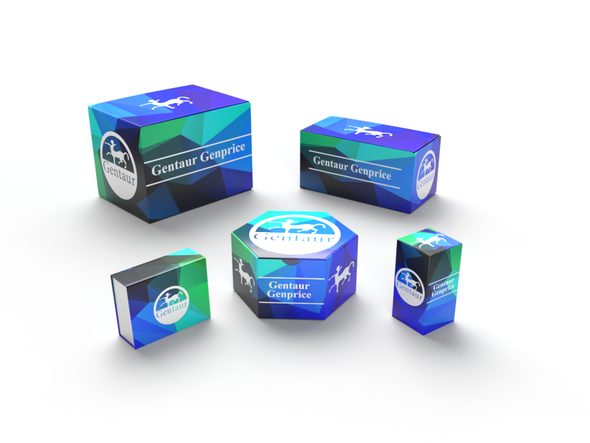740
Rat Fibroblast growth factor 9 (FGF9) ELISA Kit | AE62857RA
- SKU:
- 740-AE62857RA
- Availability:
- Usually ships in 5 working days
Description
Rat Fibroblast growth factor 9 (FGF9) ELISA Kit | AE62857RA | Gentaur UK, US & Europe Distribution
Species Reactivity: Rat (Rattus norvegicus)
Abbreviation: FGF9
Alternative Name: GAF; HBFG-9; MGC119914; MGC119915; SYNS3; fibroblast growth factor 9
Application: ELISA
Range: 15.6-1000 pg/mL
Sensitivity: 5.5 pg/mL
Intra-Assay: ≤5.3%
Inter-Assay: ≤7.1%
Recovery: 1, 03
Sample Type: Serum, Plasma, Other biological fluids
Detection Method: Sandwich
Analysis Method : Quantitive
Test Principale: This assay employs a two-site sandwich ELISA to quantitate FGF9 in samples. An antibody specific for FGF9 has been pre-coated onto a microplate. Standards and samples are pipetted into the wells and anyFGF9 present is bound by the immobilized antibody. After removing any unbound substances, a biotin-conjugated antibody specific for FGF9 is added to the wells. After washing, Streptavidin conjugated Horseradish Peroxidase (HRP) is added to the wells. Following a wash to remove any unbound avidin-enzyme reagent, a substrate solution is added to the wells and color develops in proportion to the amount of FGF9 bound in the initial step. The color development is stopped and the intensity of the color is measured.
Product Overview: Fibroblast growth factor 9 (FGF9) is a member of the fibroblast growth factor (FGF) family. FGF family members possess broad mitogenic and cell survival activities, and are involved in a variety of biological processes, including embryonic development, cell growth, morphogenesis, tissue repair, tumor growth and invasion.This protein was isolated as a secreted factor that exhibits a growth-stimulating effect on cultured glial cells. In nervous system, this protein is produced mainly by neurons and may be important for glial cell development. Expression of the mouse homolog of this gene was found to be dependent on Sonic hedgehog (Shh) signaling. Mice lacking the homolog gene displayed a male-to-female sex reversal phenotype, which suggested a role in testicular embryogenesis.
Stability: The stability of ELISA kit is determined by the loss rate of activity. The loss rate of this kit is less than 5% within the expiration date under appropriate storage condition. The loss rate was determined by accelerated thermal degradation test. Keep the kit at 37°C for 4 and 7 days, and compare O.D.values of the kit kept at 37°C with that of at recommended temperature. (referring from China Biological Products Standard, which was calculated by the Arrhenius equation. For ELISA kit, 4 days storage at 37°C can be considered as 6 months at 2 - 8°C, which means 7 days at 37°C equaling 12 months at 2 - 8°C) .






